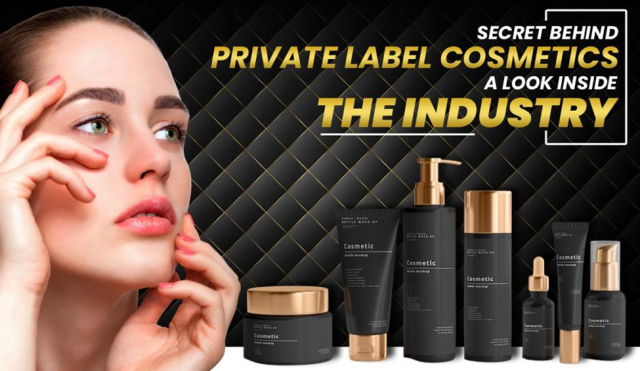The cosmetics industry has seen a significant shift in how consumers purchase and use products. Private label cosmetics have emerged as an effective way for businesses to offer personalized and cost-effective products that meet the specific needs of their customers. In this blog, we will explore the world of private label cosmetics and the manufacturing process, benefits, challenges, and future prospects of this booming industry.
The Benefits of Private Label Cosmetics:
-
Cost-effectiveness:
Private label cosmetics are cost-effective as they allow businesses to purchase products in bulk, thereby reducing costs.
-
Customization options:
Private label cosmetics offer a wide range of customization options, including product formulation, packaging design, and branding.
-
Control over quality:
Businesses have control over the quality of their products, ensuring that they meet their customers’ specific needs.
-
Faster time to market:
Private label cosmetics offer a shorter time to market as businesses can launch products quickly without investing in research and development.
Private Label Cosmetics Manufacturing Process:
-
Product category selection:
Businesses select the type of product they wish to offer, such as skincare, hair care, or makeup.
-
Formulation and production:
Private label cosmetics manufacturers create unique formulas and produce products in bulk.
-
Packaging and design:
Businesses choose the packaging and design of their products to align with their brand identity.
-
Distribution and marketing:
Products are distributed to retailers or sold directly to consumers through e-commerce platforms. Marketing efforts are geared towards building brand awareness and driving sales.
Factors to Consider When Choosing a Private Label Cosmetics Manufacturer:
When choosing a private label cosmetics manufacturer, there are several factors that businesses should consider to ensure that they select the right partner. Here are some of the critical factors to keep in mind:
-
Manufacturing capabilities:
The manufacturer should have the necessary equipment, expertise, and experience to produce the desired products with high-quality standards.
-
Certifications:
The manufacturer should have relevant certifications such as Good Manufacturing Practices (GMP) and FDA approvals, which ensure that products meet quality standards and are safe for use.
-
Customer service:
The manufacturer should offer excellent customer service and respond to business needs. Clear communication channels should be established, and businesses should have a dedicated point of contact to ensure that their needs are met.
-
Flexibility:
The manufacturer should be flexible and able to accommodate the changing needs of businesses. This includes offering customized products, packaging, and branding options.
-
Pricing:
Pricing is an essential factor to consider, and businesses should compare prices among different manufacturers to ensure that they are getting the best value for their money.
-
Reputation:
The manufacturer’s reputation in the industry is critical, and businesses should do their due diligence by researching online reviews, customer testimonials, and references from other companies that have worked with the manufacturer.
By considering these factors, businesses can choose the proper private label cosmetics manufacturer to help them meet their specific needs and achieve their goals.
Challenges and Risks in the Private Label Cosmetics Industry:
-
Intellectual property infringement risks:
Copying products, designs, or branding can lead to legal issues.
-
Quality control and safety concerns:
As businesses have control over the quality of their products, they must ensure that they meet regulatory standards and are safe for use.
-
Limited control over production and supply chain:
Businesses may need more control over the production process and supply chain, leading to delays or quality issues.
What is the Future of the Private Label Cosmetics Industry?
The private label cosmetics industry is expected to grow due to its benefits to businesses and consumers. As consumers demand more personalized products, companies will continue to offer personal label cosmetics as a cost-effective way to meet these needs. The industry is also expected to see an increase in sustainable and natural products as consumers become more environmentally conscious.
Conclusion:
Private label cosmetics offer numerous benefits to businesses, including cost-effectiveness, customization options, quality control, and faster market time. However, there are challenges and risks, such as intellectual property infringement, quality control, and limited control over the production process.
Despite these challenges, the industry is expected to grow as consumers demand more personalized and sustainable products. By choosing the right private label cosmetics manufacturer and implementing effective marketing strategies, businesses can capitalize on the opportunities presented by this booming industry.
